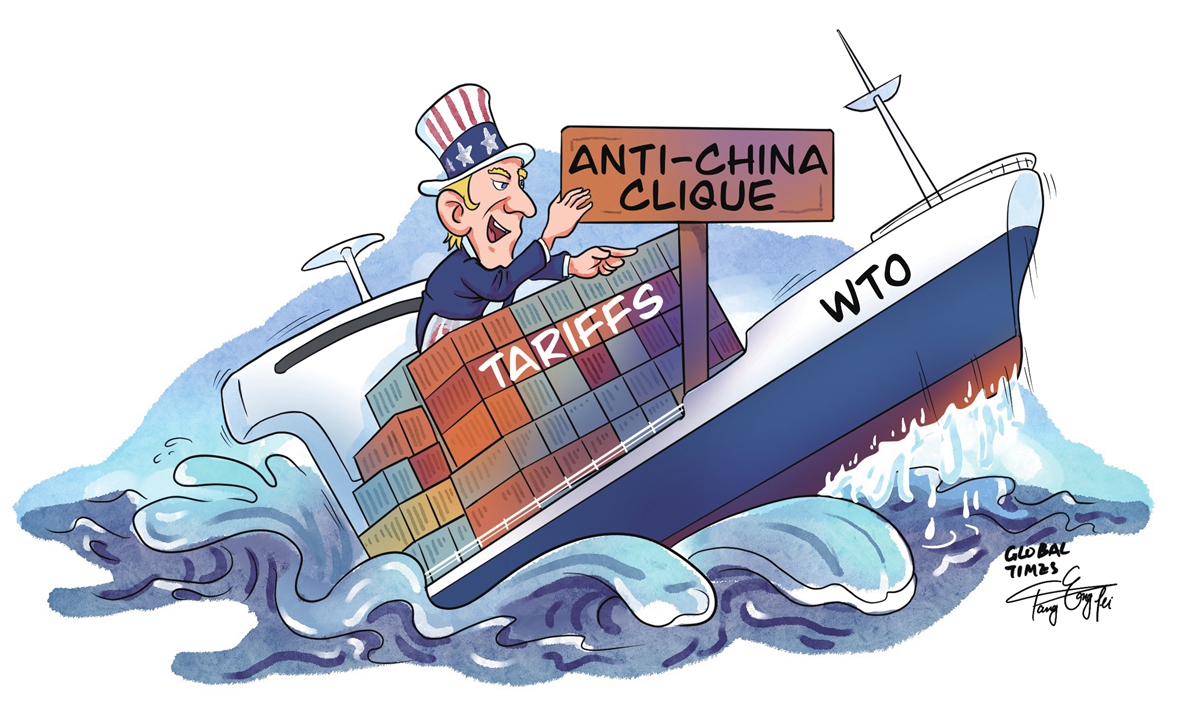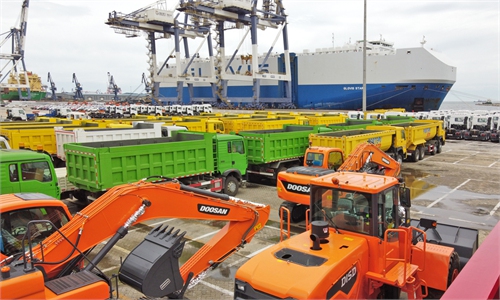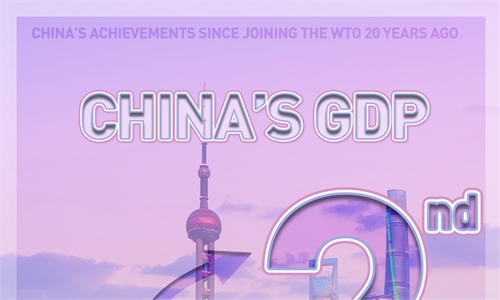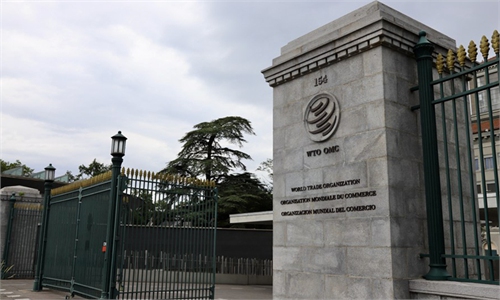COMMENTS / EXPERT ASSESSMENT
US can’t form a small clique within WTO to contain China

Illusration: Tang Tengfei/Global Times
This year marks the 20th anniversary of China's accession to the World Trade Organization (WTO). Thanks to China's continuous reform and opening-up efforts to align with international rules, China's accession to the WTO has become a win-win result for all. However, when the development of international trade patterns faces severe challenges such as the rise of protectionism, the WTO is facing increasing pressure too.As the most important multilateral free trade body in the world, the WTO has played a critical role in promoting open trade and resolving trade disputes over the past decades. But in recent years the authority of this platform has been challenged.
First, part of the WTO's functions, including the appellate body, review mechanism, and negotiation mechanism, has been weakened. Second, for emerging fields such as e-commerce, digital economy, carbon tariffs, countries are looking forward to new multilateral rules to be established. Third, with the conclusion of more regional Free Trade Agreements (FTAs), there are disputes over how to coordinate new rules. Therefore, there is a general consensus among member states to jointly promote the WTO reform.
There are great differences among countries on the best path forward when it comes to the WTO reform. Such differences are mainly between the demands of developed and developing countries, and there are also differences between major trading nations. Although China and the US are not the only decisive factors in promoting the WTO reform, as the US has intensified its suppression of China, the lack of coordination and heightened tensions between the two countries have made the WTO reform more difficult.
China's position on the WTO reform is clear: China emphasizes that it will continue to uphold multilateralism and strengthen WTO functions through reforms, so that it can play a greater role in promoting trade liberalization and resolving trade disputes, rather than subverting the original mechanism.
China insists on safeguarding the interests of developing countries, which account for more than two-thirds of WTO membership. If WTO rules do not protect their interests, but only considers the interests of individual developed countries, it is hard to imagine that this platform will remain relevant over the long term.
But on the other hand, the US is promoting protectionism and even trying to create a small clique within the WTO to contain China.
Judging from the US Innovation and Competition Act, or USICA, the US represents trade protectionism and it restricts technical cooperation with other countries. To this day, the US has not abolished unreasonable tariffs it imposed on China, while also continuing to place trade restrictions on Chinese technology companies. Such an approach is unacceptable not only to China, but also to most WTO members.
With the WTO ministerial conference postponed, US media outlets reported that the US is trying to gang up with the EU and Japan to renew an alliance within the WTO to contain China.
For a long time, the US and its allies have used topics including state-owned enterprises and subsidies to attack China, claiming that China has not fulfilled its WTO commitments, but these claims don't stack up. In fact, China has fulfilled 100 percent of its commitments under the China's Protocol of Accession. Regarding controversial issues, China has been committed to aligning itself with international rules through continuous reform and opening-up.
Since its accession to the WTO, China has become the world's largest trading country and the world's largest trading partner for more than 120 countries and regions. China's economic growth has contributed about 30 percent of the global economy over successive years. China's prosperity has attracted foreign investment and has provided firms with new growth opportunities. The Chinese market is the biggest opportunity for global companies. Although China has benefited from WTO, China's contribution is also obvious to all.
It is impossible for the US and its allies to establish a set of rules in the WTO that only serve their own economic interests. It is not the US, Europe and Japan that can determine the development and changes of today's international trade. The Europe and Japan will not completely follow the US to set in place US-centric trade rules. Even if such rules are established, they cannot be used to restrain China. Not to mention that most developing countries in the WTO will definitely support China's position on the WTO reform.
The basic principles of the WTO hinge on an open, transparent and nondiscriminatory policy environment, as well as relevant principles such as most-favored-nation treatment and national treatment. These principles are also the basic requirements of a market economy. If the US wants to scrub clean these principles for political purposes, their political calculations will inevitably fail. Historically, when a country tried hard to promote trade protectionism, it is the time when the country began to decline. If the US continues its protectionism approach, it can only show that its economy has encountered more serious difficulties than it seems.
The author is vice chairman of the China Society for World Trade Organization Studies in Beijing. bizopinion@globaltimes.com.cn



